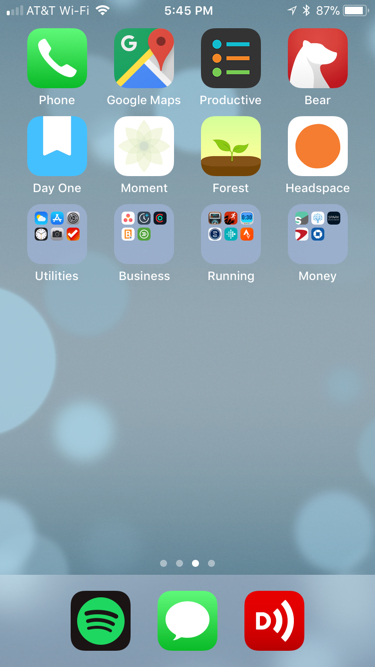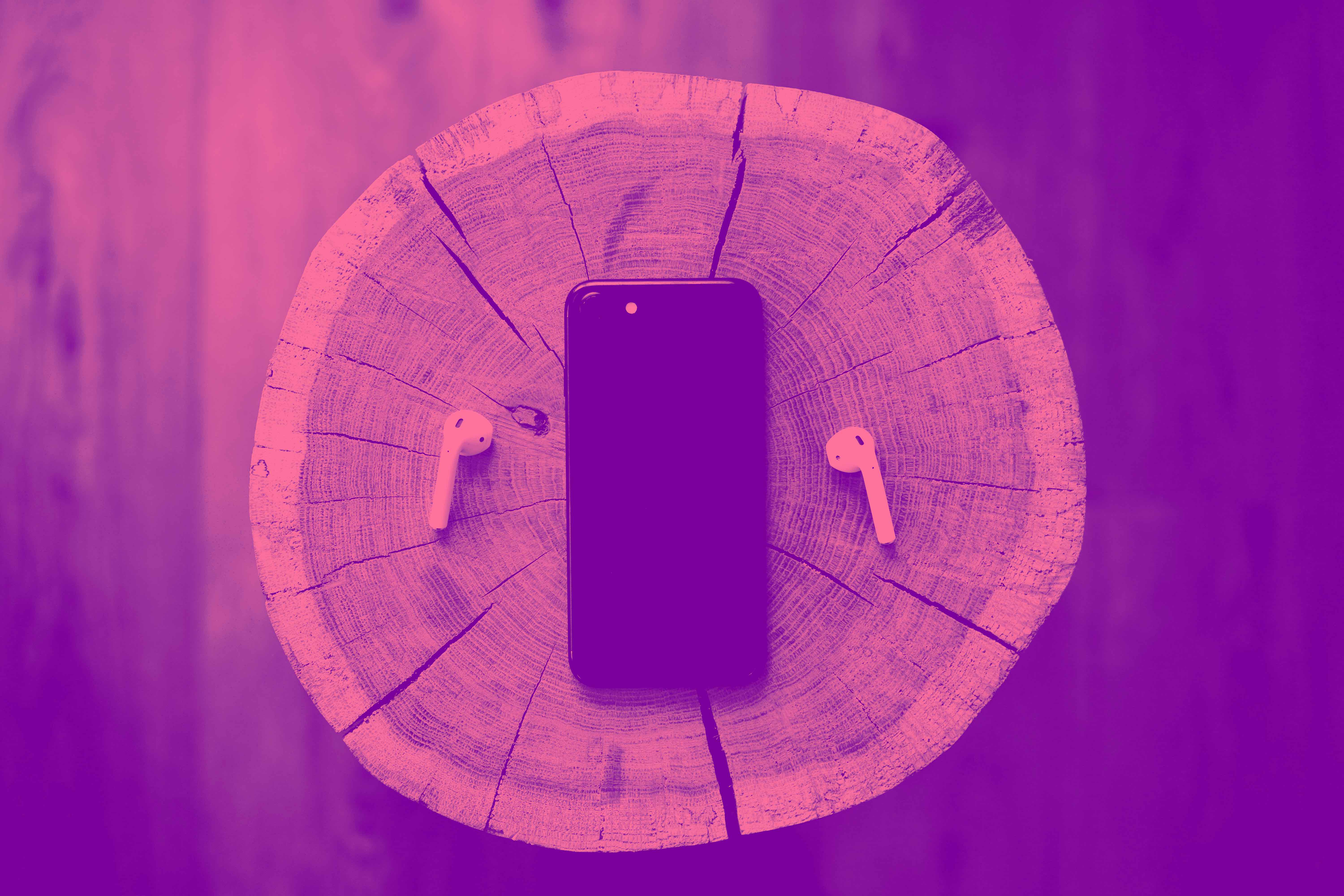We live in the attention economy. Every time we open an app, check our email, or glance at our phones for the time, it’s easy to be distracted by what we find there. We have two possible ways to handle this:
1. Completely opt-out of the attention economy. Go on a permanent digital detox or retreat deep into the mountains of Alaska (I tried that for a while, but that’s another story).
2. Learn how to use our devices in a way that directs our attention in productive and meaningful ways.
Disconnecting can be refreshing and rejuvenating, but we also need to find a way to peacefully coexist with our devices. Over the last few years, I’ve transformed how I interact with my phone. Here are a couple ways I use my phone today. Feel free to use them to start reclaiming your time and attention!
Give your mind room to breathe by removing home screen distractions
My phone home screen doesn’t have a lot going on:

Seeing an empty screen gives us a split second to remember why we are looking at our phones. This tiny bit of friction between looking at our phones and ‘the feed’ can help us set an intention each time we use your phones. Why did I pick it up, and what am I hoping to accomplish?
Choose apps that allow for more attention rather than more distraction
Since we now have no apps on your home screen, the next screen can include just the essentials. Here’s mine:

Some of these apps are practical (phone, Google Maps, Bear, Day One) and some make it easier to find focus and mindfulness (Moment, Forest, and Headspace).
I certainly haven’t deleted every app that could be potentially distracting, but that was never the goal. Those apps just stay out of view, so they only occupy my attention when I actively seek them out.
As an experiment, I recently deleted my email app. I might download it again, but I might find that it was something I never needed to rely on so much on in the first place. What app do you spend the most time using? Try deleting it, and let me know how it goes.
Manage your notifications instead of letting them manage you
I’ve been consistently turning off more and more notifications. Headspace reminds me to stay mindful throughout the day, and Productive reminds me if I haven’t completed habits I’m trying to create. Facebook sits quietly in a hidden folder on a hidden screen, for when I just have to see the latest cat GIF.
Our willpower is a limited resource. When we’re not using it to maintain focus while being bombarded by notifications, we can use it to exercise more, eat better, or better navigate that political conversation with the in-laws.
Our phones aren’t completely connected to us (yet)
How often have you checked the time, seen that your Instagram post got 27 likes, and totally forgotten what time it was?
A physical watch is one way to disconnect the time from the endless distractions of a phone. I use a Fitbit… and yes, I realize the irony of using another piece of tech to manage tech distractions.
Even just moving our phones from pockets to packs can keep it in reach, but out of mind. Maybe it will reduce phantom cellphone vibrations along the way.
Looking at my phone used to be the first thing I did in the morning and last thing I did at night. By moving our phones to another room while we sleep, we can keep those distractions out of the bedroom. Sometimes I just have to watch that next episode of House of Cards in the evening, but my phone still gets plugged in outside the bedroom. We can stay more focused on both Frank Underwood’s next scheme and our own sleep.
Reclaiming our attention is a marathon, not a sprint
My phone still occasionally inserts itself into my life, but I can’t deny having all human knowledge at our fingertips is a powerful and valuable tool. We just need to find ways to use our phones on our terms.
Did this article help you better manage digital distractions? Check out Mindful Makers for more ways to make better decisions, stay focused on what matters, and grow your business using mindfulness and meditation.
Thanks to Jake Knapp and all the other folks who have reclaimed their attention from their phones before me.
Bryan Zavestoski is using design to make Silicon Valley a more mindful place at Zavzen Design and talking about the connection between technology, business, and mindfulness at Mindful Makers.


